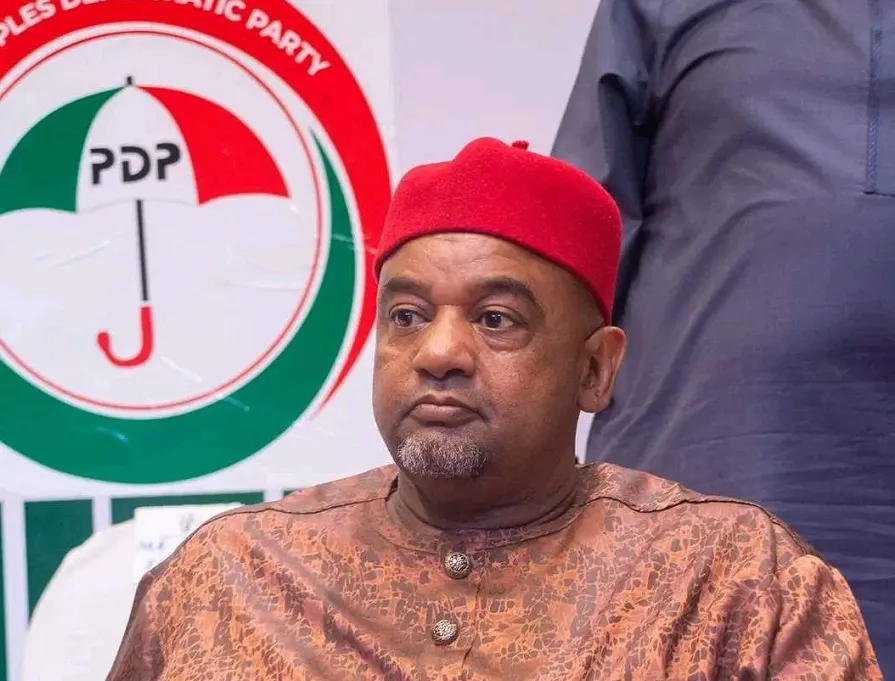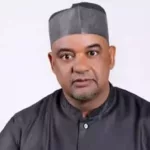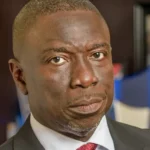The defections hitting the main opposition, the Peoples Democratic Party (PDP), in recent days, especially from its hitherto strongholds – the South-South and South-East – have raised further concerns about whether the former Nigeria’s ruling party would be able to turn the tides, Daily Trust on Sunday reports.
Even for independent observers, this is not the best of time for the party that ruled the country for 16 years after the dawn of democracy in 1999. More worrisome is the perceived lack of ideas and zeal to fix all the issues threatening the soul of the party.
The party is currently plagued by many ills, which are threatening the very existence of the edifice of which its members used to be proud of as the largest political party in Africa.
Since the party jettisoned its zoning formula in the build-up to the 2023 presidential election, an election the party lost, things have not been well with and within the ranks of its members.
- Telecom sector cannot be used as palliative for economic woes, telcos reply FG
- Rivers State political crisis: Fubara’s return salvo
Issues like the tussle over who controls the structures of the party, defections, open and covert anti-party activities, failure to abide by the zoning formula of the party, and the inability of the leadership at the national level to wield the big stick in disciplining members, among others, are said to be responsible for the present impasse in the party.
As it stands, the strength of the party to contest in future elections and win the same is already under scrutiny following the widespread defections that transcend Imo, Rivers, Abia, Edo, and recently, Katsina State, where a former governor of the state, Ibrahim Shema, dumped the party for the ruling All Progressives Congress (APC).
A chieftain of the party from Ogun State, Segun Sowunmi, who has indicated interest in leading the party, observed that the defections were worrisome, but added that the party would rescue itself.
The aftermath of the 2023 general elections, which divided loyalty in the party between its presidential candidate, Atiku Abubakar, and the current Minister of the Federal Capital Territory (FCT), Nyesom Wike, in no small way led to the current state of things. The recent upheavals in the party, which are tied to the refusal of the acting national chairman of the party, Ambassador Umar Damagum, and the national secretary, Senator Samuel Anyanwu, to vacate their positions against the will of some of the party stakeholders, received life from the impasse between Atiku and Wike and their moves to control the structure of the party.
Many stakeholders felt the issues would be addressed during the last National Executive Committee (NEC) meeting of the party, but the way and manner the meeting ended left many frustrated, and many of them have taken the option of pursuing their political career in another party.
Among the high-profile individuals that have left the party were the former governor of Imo State and former deputy speaker of the House of Representatives, Emeka Ihedioha, who left with more than 25 other chieftains of the party and their supporters in Imo State.
Apart from Ihedioha, others who left the party include a former member of the House of Representatives, a member of the Board of Trustees (BoT) and many other chieftains of the party.
The party in Imo State before was said to have been divided into two camps: Emeka Ihedioha, who has now left the party, and the national secretary, Senator Samuel Anyanwu.
In Rivers State, the political impasse between the governor, Siminalayi Fubara, and the minister of the FCT, Wike, has left the party in bad shape.
Before now, 27 members of the Rivers State House of Assembly loyal to Wike left the PDP and moved to the APC, with the PDP and the state governor saying they are no longer lawmakers by virtue of their defection.
Many stakeholders of the PDP in Rivers have also joined the FCT minister in working for the APC administration of President Bola Tinubu, even though they have not yet publicly declared their defection from the party.
In Edo State, the situation is even more serious with the governorship election coming up later in the year.
The process that led to the emergence of the governorship candidate of the party, Asue Ighodalo, has left many aspirants angry.
The then deputy governor, Philip Shaibu, who was recently impeached by the State House of Assembly, is said to be romancing with the APC in the state.
The governor, Godwin Obaseki, is already struggling to convince even members of his own party to support their candidate. The group that called itself the Legacy Group under the leadership of the PDP, South-South vice chairman, Dan Orbih, is already having a running battle with the governor’s camp.
Orbih, the leader of the legacy group, is a known ally of Wike, and it was their platform that was used to rescue Obaseki through the influence of Wike when the APC and Adams Oshiomhole denied him a second term ticket under the party. However, since then, things have turned soar, with the political leaders not seeing eye to eye.
With Wike already working with the APC administration at the centre and Orbih rejecting his nomination to the campaign council of Asue Ighodalo, the stage might be set for a grand gang-up against the PDP and Obaseki.
In many states, the situation in the PDP is precarious, and analysts believe that unless something happens soon, the party might be worse for it.
APC plotting one party state – PDP NEC member
Speaking on the situation in the party, a member of its NEC, Tim Osadolor, blamed the APC for allegedly plotting to foist a one-party state on Nigerians, an allegation the ruling party has dismissed severally.
He alleged further that the “deliberate poverty-generating policies of the Bola Tinubu-led federal government have further made life unbearable for ordinary and formerly comfortable Nigerians.
“Not everyone has the capacity and wherewithal to resist or defeat hunger. A hungry man cannot make sane decisions most of the time,” he added.
He said many opposition politicians were “hungry, tired and struggling to get by, and they think joining the APC would bring succour.”
Osadolor, who is also the national deputy youth leader of the PDP, said the Damagun-led NWC was trying its best, but the defectors want to make it look as if there is leadership failure.
On his part, Sowunmi said the defections were a matter of concern, but added that the party would rescue itself.
He also said, “What is necessary is for the PDP to re-invent itself and improve its internal organs for managing disputes. The party can rescue itself.”
He, however, noted that in the midst of what is happening, the party must take very seriously, the perception that the larger society is getting into the management and handling of the party at the national and state levels.
He said, “Whereas the ruling party has the opportunity of government patronage and other things to keep their people in, an opposition party might not be that lucky. But that does not mean that the party cannot organise itself to take power in future elections. Even those in power today spent 16 years in opposition.
“What is going on in Imo, Abia and other states is not good, but those running the party need to do more to make sure they don’t frustrate their followers and members into leaving the party.”

 Join Daily Trust WhatsApp Community For Quick Access To News and Happenings Around You.
Join Daily Trust WhatsApp Community For Quick Access To News and Happenings Around You.


